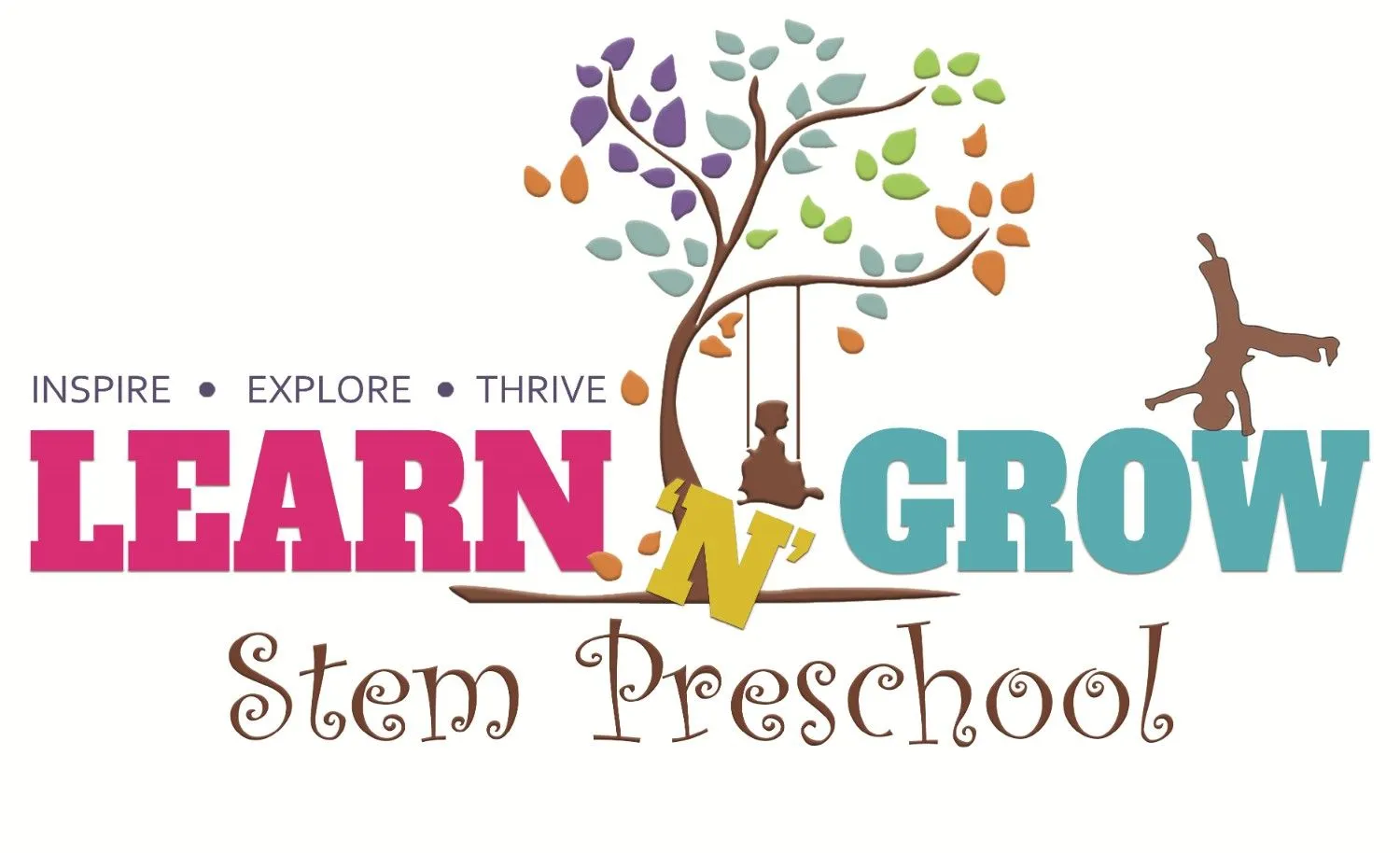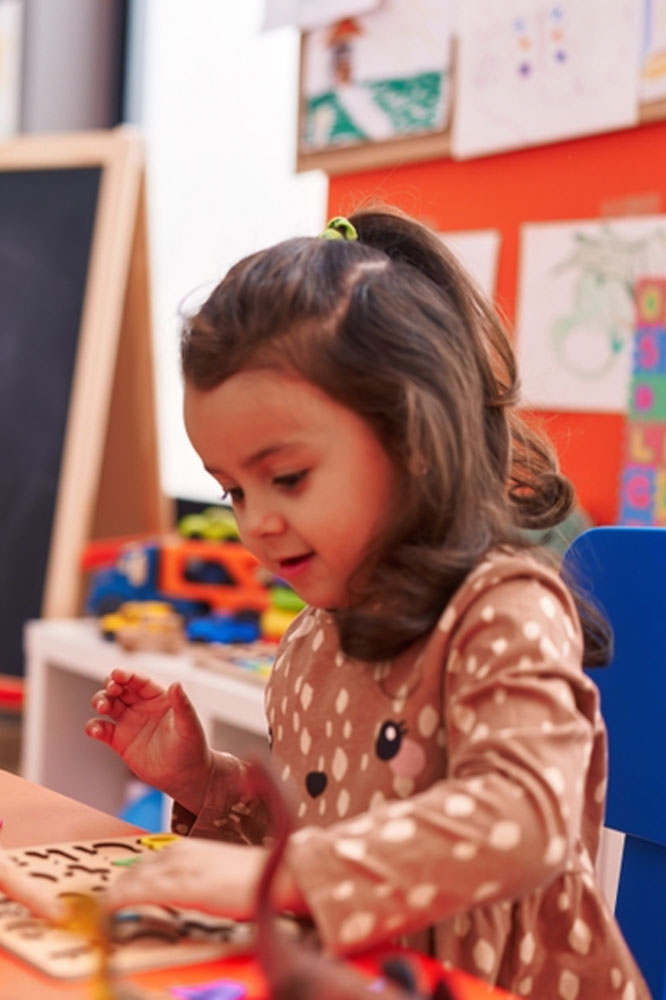Pre-School Curriculum
PRESCHOOL PROGRAM (3 YEARS TO 4 YEARS)
According to early childhood brain research, preschoolers have unique characteristics and needs during this time. They are full of excitement as they begin to learn about themselves and about others.
Recognized by many parents as the “Why” phase, preschoolers are asking questions of all kinds, absorbing information, and trying to make sense of the world around them. They have a hunger for knowledge and won’t rest until they get every question answered.
The Learn ‘N’ Grow Pre-School Program is equipped to feed the boundless energy of your preschooler. Our teachers guide and develop your child’s thinking through purposeful play, meaningful questioning, and guided instruction.
We’ve designed best child programs to give you confidence in every aspect of your child’s daily development. Our trained preschool teachers will fill their days with opportunities to build upon existing knowledge—setting your child up for a bright future with unlimited possibilities.
PRESCHOOL CURRICULUM
At this stage most preschoolers are transitioning from parallel play to interactive play. Our fun and engaging curriculum is designed to meet the evolving needs of preschoolers in five key areas of development:
Social & Emotional
Social-emotional intelligence is one of the best predictors of future success. Our well-balanced curriculum builds character and develops skills they will use throughout their life.
Physical Development
Active children become active adults. Our loving teachers combine movement and balance with plenty of smiles and laughter to encourage an active lifestyle. Games and activities on our age-appropriate playground give your child a chance to experience a new kind of fun while outdoors. This experience not only fuels their physical strength and coordination but also prepares children for the structured movement and gross motor skills they will begin to experience through Pre-K education.
Language & Literacy
Language and literacy development is critical during the early years. Our kind and compassionate teachers instill the love of reading in every child, as they teach important literacy skills through story time, sign language, phonics, and reading & writing.
Math
Early experiences with math help preschoolers develop logical reasoning and problem-solving skills essential to future success. Our foundational math curriculum introduces patterns, sequencing, numeration, and one-to-one correspondence a key element to the development of important problem-solving skills.
Creativity & STEM
We offer the best STEM Education Programs Frisco TX. Right from the beginning, brain development is critical and it’s at its best with engaging activities and imaginative experiences! Our preschool program enhances your child’s cognitive abilities and guarantees success in school and ultimately in life.
What Parents Say About Us
FAQ'S
What age group is the Preschool Program for?
The Preschool Program is for children ages 3 to 4 years old and focuses on fostering curiosity, creativity, and social growth through individualized learning, intended play, and educator-facilitated investigations in a welcoming space.
What is the primary focus of the Preschool Curriculum?
It emphasizes the development of social, emotional, cognitive, and physical skills while also promoting independence, problem-solving, and readiness for academic learning through intentional activities combined with STEM (science, technology, engineering, and math) learning experiences.
How does the Preschool program promote physical development?
Through active play, outdoor games, and learning on the move, children enhance coordination, balance, and motor skills while instilling a love for exercise and sharing experiences with their peers.
In what ways, language and literacy supported in Preschool?
Our Teachers use storytelling, vocabulary development activities, and discussions within small and large groups that promote communication, understanding, and early reading skills.
What is the role of math in the preschool curriculum?
Basic concepts in math such as patterns, sequencing, and numeration develop logical thinking, which helps children establish understanding of relationships, structure and problem solving in regard to their everyday experiences.
How does STEM education benefit preschoolers?
STEM activities promote curiosity, experiential learning, and creativity. These experiences allow for children to expand their brain’s capabilities and also sets them up for achieving academic success in subsequent settings.
How do teachers support emotional and social growth?
Teachers create a nurturing space that builds empathy, cooperation, and confidence, helping children establish friendships, share experiences, and manage emotions positively.
What distinguishes preschool from pre-K programs?
Preschool is for children 3 to 4 years old who are learning through play along with social and emotional development. Pre-K is for children who are 4 to 5 years old and is more structured in regard to the academic setting and focuses on literacy, numeracy, and kindergarten readiness.
What advantages does preschool education provide to pre-K learning?
Preschool education offers children a solid foundation in their language, cognitive, and social skills, which would assist in transitioning to Pre-K. Preschool fosters curiosity, builds problem-solving skills, and builds independence, which are all developmentally appropriate skills for a more structured academic Pre-K experience.


